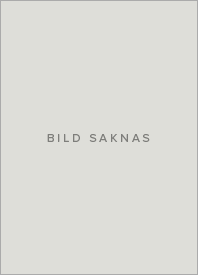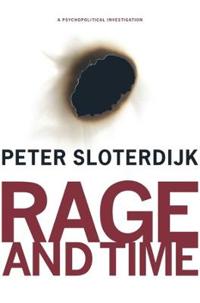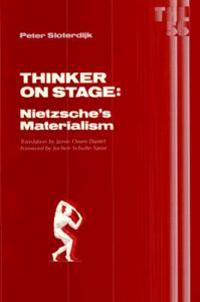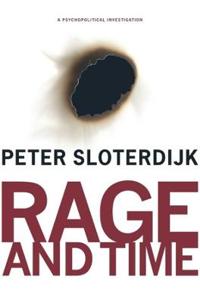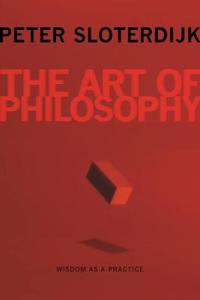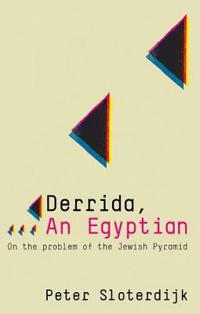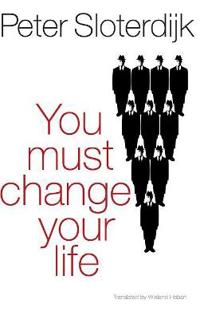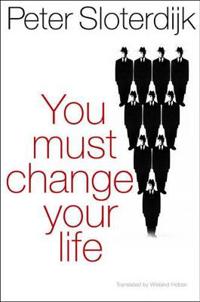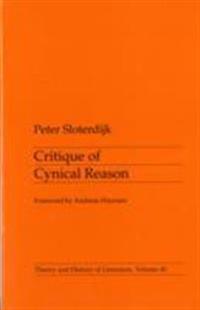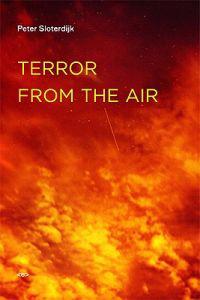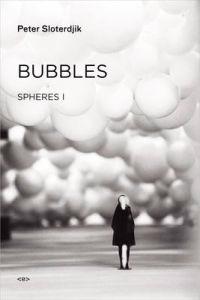Peter Sloterdijks Kritik der zynischen Vernunft (Pocket)
avPeter Sloterdijk
ISBN: 9783518112977 - UTGIVEN: 2012-05Rage and Time (Inbunden)
avPeter Sloterdijk, Mario (TRN) Wenning, Peter Sloterdijk
ISBN: 9780231145220 - UTGIVEN: 2010-05While ancient civilizations worshipped strong, active emotions, modern societies have favored more peaceful attitudes, especially within the democratic process. We have largely forgotten the struggle to make use of thymos, the part of the soul that, following Plato, contains spirit, pride, and indi[...]
Thinker on Stage (Pocket)
avPeter Sloterdijk, Jamie Owen (TRN) Daniel, Peter Sloterdijk
ISBN: 9780816617654 - UTGIVEN: 1989-07Globes (Inbunden)
avPeter Sloterdijk, Wieland (TRN) Hoban, Peter Sloterdijk
ISBN: 9781584351603 - UTGIVEN: 2014-10All history is the history of struggles for spheric expansion.--from Globes In Globes -- the second, and longest, volume in Peter Sloterdijk's celebrated magnum opus Spheres trilogy -- the author attempts nothing less than to uncover the philosophical foundations of the political history -- the his[...]
Rage and Time (Häftad)
avPeter Sloterdijk
ISBN: 9780231145237 - UTGIVEN: 201205While ancient civilizations worshipped strong, active emotions, modern societies have favored more peaceful attitudes, especially within the democratic process. We have largely forgotten the struggle to make use of thymos, the part of the soul that, following Plato, contains spirit, pride, and indi[...]
Philosophical Temperaments: From Plato to Foucault (Pocket)
avPeter Sloterdijk
ISBN: 9780231153737 - UTGIVEN: 2013-05-28Art of Philosophy, The: Wisdom as a Practice (Inbunden)
avPeter Sloterdijk
ISBN: 9780231158701 - UTGIVEN: 2012-09-14The Art of Philosophy (Häftad)
avPeter Sloterdijk
ISBN: 9780231158718 - UTGIVEN: 201209In his best-selling book You Must Change Your Life, Peter Sloterdijk argued exercise and practice were crucial to the human condition. In The Art of Philosophy, he extends this critique to academic science and scholarship, casting the training processes of academic study as key to the production of[...]
God's Zeal: The Battle of the Three Monotheisms (Inbunden)
avPeter Sloterdijk
ISBN: 9780745645063 - UTGIVEN: 2009-08-31God's Zeal: The Battle of the Three Monotheisms (Häftad)
avPeter Sloterdijk
ISBN: 9780745645070 - UTGIVEN: 2009-07-31Derrida, an Egyptian: On the Problem of the Jewish Pyramid (Häftad)
avPeter Sloterdijk
ISBN: 9780745646398 - UTGIVEN: 200908Shortly before his death in 2004, Jacques Derrida expressed two paradoxical convictions: that he would be forgotten when he died, yet he was certain that something of his work would survive in the cultural memory. This text by Peter Sloterdijk makes a contribution of its own to the preservation and[...]
In the World Interior of Capital: Towards a Philosophical Theory of Globali (Häftad)
avPeter Sloterdijk
ISBN: 9780745647685 - UTGIVEN: 2013-08-31In the World Interior of Capital: Towards a Philosophical Theory of Globali (Häftad)
avPeter Sloterdijk
ISBN: 9780745647692 - UTGIVEN: 2013-08-31You Must Change Your Life (Inbunden)
avPeter Sloterdijk
ISBN: 9780745649214 - UTGIVEN: 201301In his major investigation into the nature of humans, Peter Sloterdijk presents a critique of myth - the myth of the return of religion. For it is not religion that is returning; rather, there is something else quite profound that is taking on increasing significance in the present: the human as a p[...]
You Must Change Your Life (Pocket)
avPeter Sloterdijk
ISBN: 9780745649221 - UTGIVEN: 2014-07In his major investigation into the nature of humans, Peter Sloterdijk presents a critique of myth - the myth of the return of religion. For it is not religion that is returning; rather, there is something else quite profound that is taking on increasing significance in the present: the human as[...]
In the Shadow of Mount Sinai (Inbunden)
avPeter Sloterdijk
ISBN: 9780745699233 - UTGIVEN: 2015-10-09Terror from the Air (Häftad)
avPeter Sloterdijk
ISBN: 9781584350729 - UTGIVEN: 200905According to Peter Sloterdijk, the twentieth century started on a specific day and place: April 22, 1915, at Ypres in Northern France. That day, the German army used a chlorine gas meant to exterminate indiscriminately. Until then, war, as described by Clausewitz and practiced by Napoleon, involved [...]
Neither Sun Nor Death (Pocket)
avPeter Sloterdijk, Hans-jurgen Heinrichs
ISBN: 9781584350910 - UTGIVEN: 2011-03-11A series of dialogues with the most exciting and controversial German philosopher writing today.
Bubbles (Inbunden)
avPeter Sloterdijk
ISBN: 9781584351047 - UTGIVEN: 201111An epic project in both size and purview, Peter Sloterdijk's three-volume, 2,500-page Spheres is the late-twentieth-century bookend to Heidegger's Being and Time. Rejecting the century's predominant philosophical focus on temporality, Sloterdijk, a self-described "student of the air," reinterprets t[...]

